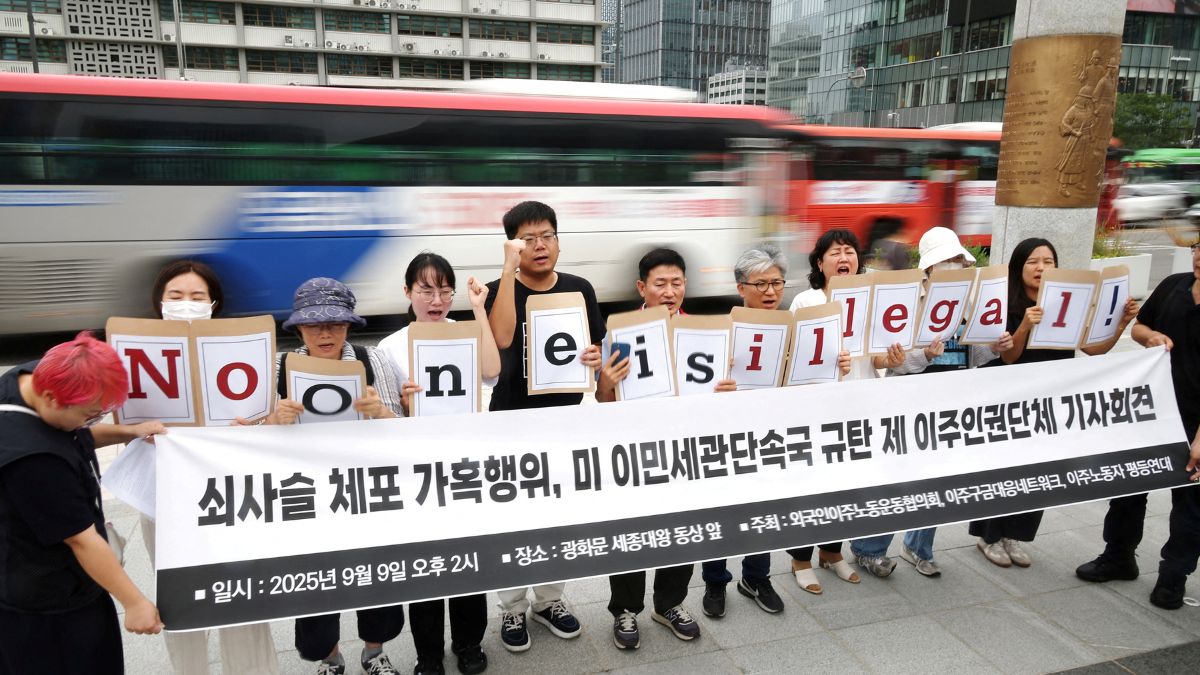South Korean workers who were held in the US after the Immigration and Customs Enforcement (ICE) conducted a raid in a Hyundai-LG battery facility last week are set to return home on Friday.
The journey was long as their repatriation hit multiple snags along the way, with US President Donald Trump delaying their travel.
Over 300 South Korean workers were detained during an ICE raid at a battery factory under construction at Hyundai’s sprawling auto plant in Georgia.
A chartered Korean Air jet carrying the workers, along with 14 non-Koreans who were also detained during the raid, departed from Hartsfield-Jackson Atlanta International Airport around midday on Thursday (17:00 BST). One South Korean national has reportedly opted to remain in the US to pursue permanent residency. The plane will land at the Incheon International Airport at 15:30 in Seoul time.
Trump reportedly delayed their deportation as he wanted to check if any of the workers wanted to stay back and train Americans. Trump told US officials to “encourage” the workers arrested at the battery plant to remain in the country and suggested they stay to continue to train or educate Americans.
Meanwhile, South Korean President Lee Jae Myung on Thursday said that companies based in the country will be hesitant to invest and operate in the US in the absence of a proper visa system for its workers.
South Korean and US officials are discussing a possible improvement to the US visa system, Lee said, adding that under the current system, South Korean companies “can’t help but hesitate a lot” about making direct investments in the US.
Impact Shorts
More ShortsWhether the US establishes a visa system allowing South Korean companies to send skilled workers to work at industrial sites will have a “major impact” on future South Korean investments in the US, Lee said.
After the detentions, South Korean companies “can’t help but question whether setting up a plant in the US is worth the potential risks,” the president said.
“This could have a significant impact on future investment decisions, particularly when evaluating the feasibility of direct operations in the US,” he added.
With inputs from agencies
)